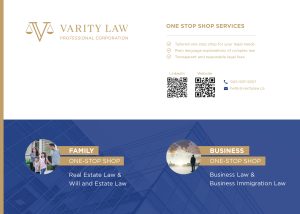Do you own property in Toronto or Ottawa? If so, you may be forced to pay additional taxes and it could cost you thousands or tens of thousands, depending on the value of your property. However, you may be able to avoid these additional taxes and we can tell you how.
Recently, due to the surge in property values, the cities of Toronto and Ottawa have introduced a new vacant home tax to discourage property owners from holding unoccupied properties. While this tax has only been introduced in Toronto and Ottawa so far, many other regions across Ontario have taken moves to implement similar taxes in their regions, so it is important, especially for any real estate investors, that you have a solid understanding of these new taxes.

How much is the new tax going to cost me?
What do these new taxes mean for you, Joe and Jane Homeowner? Well, if you own a house in Ottawa or Toronto that is “vacant” (see definition below), you will have to pay an annual tax of 1% of the value of your property. For a $1,000,000 property, that will result in an annual tax of $10,000 , in addition to any other property taxes already being paid for the property. These taxes, just like the taxes you’re already paying for your property, will be added to your tax bill.
What is a “Vacant” home?
The good news is that this tax doesn’t apply to every property located in Toronto or Ottawa, as it only captures “vacant” properties. What is a vacant property you ask? Well, the government has declared that the following 9 property types will NOT be deemed “vacant”:
- Principal residence – if you lived in your property for 6 months or more in 2022;
- Properties occupied by “permitted parties” – if your family member or your friend lived in your property as their principal residence for 6 months or more in 2022, the tax should not apply to your property – note, there can only be one principal residence per person;
- Tenanted properties – if you rent out your property for 6 months or more in 2022;
- Property where the owner passed away in 2022, thus leaving the property empty;
- Property where the owner lived in a hospital or other medical facility in 2022 – you can use this reason for up to two years;
- Your property is undergoing major renovations, making it unsuitable to live in;
- You bought the property in 2022, but you didn’t have enough time to live in there for more than 6 months.
- Your principal residence is in another city, but you must live in the Toronto or Ottawa property due to work.
- The Court made an order stating that your property cannot be lived in for 6 months or more in 2022.
Please note, for the above exceptions, the cities may demand proof that you meet the exemption. If you don’t provide the proof or the city rejects your proof, you could be forced to pay the tax. Types of proof you may have to supply include things like lease agreements, employment records, court orders, medical records, proof of renovations, deeds, or death certificates).

Case Study Examples:
Jane owns a home in Toronto, but she lives there all year so she plans to ignore the new tax
While the above-listed properties (1-9) will not be subject to the new tax, this doesn’t mean Jane can ignore the tax. Since Jane owns a property in one of the cities with the new tax, she MUST declare the occupancy status annually (either by using the city’s paper form or using the city’s online system) and a failure to do so could have serious consequences. First, Jane could receive a fine from the city for $250.00 for not declaring the occupancy status (waived by the city of Ottawa for 2023). Secondly, if Jane fails to declare, she will be assessed as a vacant property and will be charged the additional tax. Also, if Jane does not pay these taxes when they become due, she will be charged 1.25% interest on the unpaid taxes from the date they were due.
Whether Jane was notified by her city or not, since she lives in Toronto she must declare her occupancy status by no later than February 2, 2023. If she lived in Ottawa she would have until March 16, 2023 to make her declaration. Also, if she made her Ottawa declaration after March 16, 2023 she would be deemed late and if she doesn’t make it by April 30, 2023, her property will be deemed vacant and she must pay the additional 1% vacant home tax.
Jane owns a condo in Toronto where she lives from March to December
Thankfully, as discussed above, because Jane lives in the property for more than 6 months of the year, she will be exempt from this new tax.
Jane owns a condo in Ottawa that she lives in from June to August, as she spends the rest of the year in Alberta.
Unfortunately, since the property is vacant for more than 6 months of the year, Jane will not be exempt and will need to pay an additional 1% of the property value as tax on her annual bill.

Jane owns a property in Newcastle, Ontario, but she doesn’t live there
While it may only be a matter of time before other regions implement this tax, it is currently only in effect in Ottawa and Toronto, so Jane doesn’t need to worry about the tax or declare her occupancy status for her Newcastle property.
Jane doesn’t want to pay this tax and the government doesn’t know where she lives, so she will just lie on her declaration to save money
To keep people honest, the cities have declared that a fine of up to $10,000 may be imposed on anyone who falsifies their declaration. Also, because the city can request proof of your claimed exemption, any lies could backfire with severe and costly consequences for Jane.

Conclusion
The lawyers at Varity Law Professional Corporation have the experience and skill to assist you with your real estate matters. If you are purchasing an investment property or currently own one, please call our office to discuss what we can do to help you.
Jon is a senior lawyer at Varity Law Prof. Corp.
This article is intended to provide general legal information, not specific legal advice regarding what you should do in your situation.
For specific legal advice, please book a 1st free consultation with us HERE.






